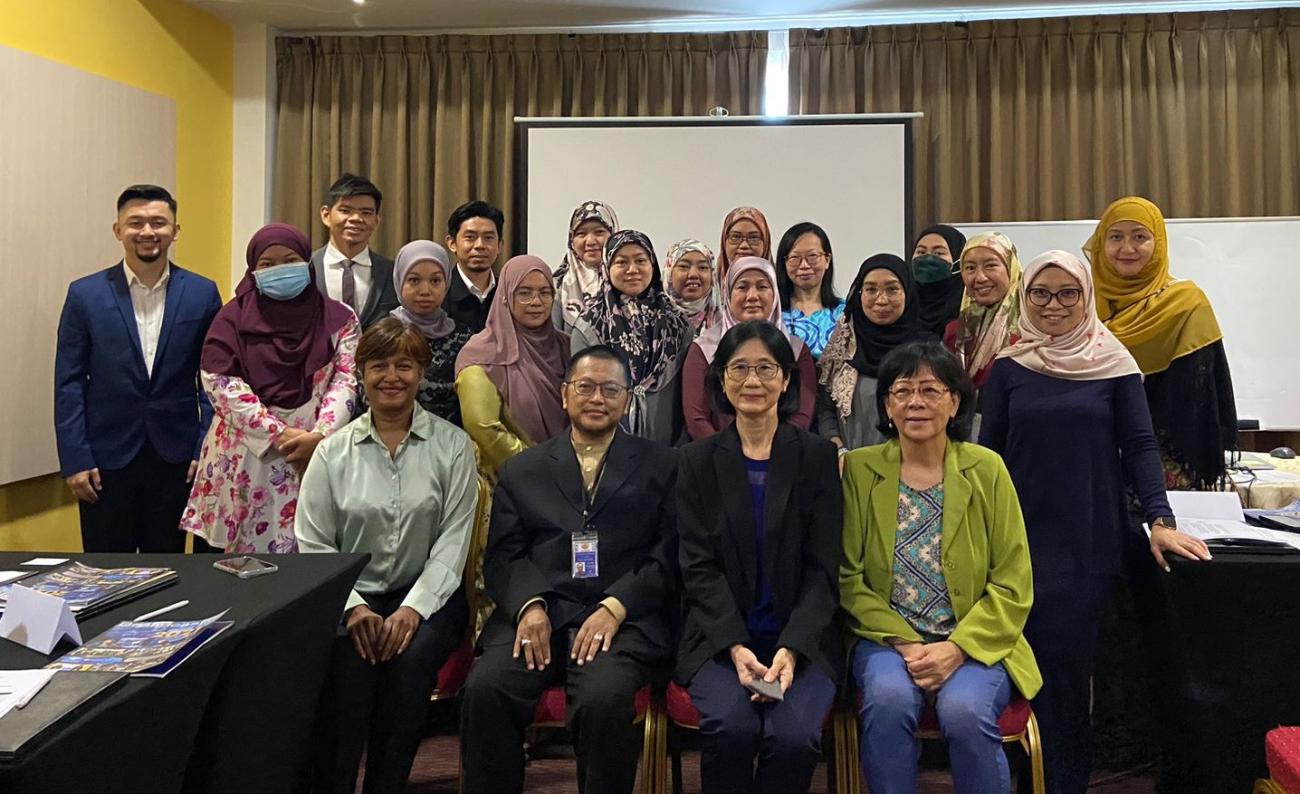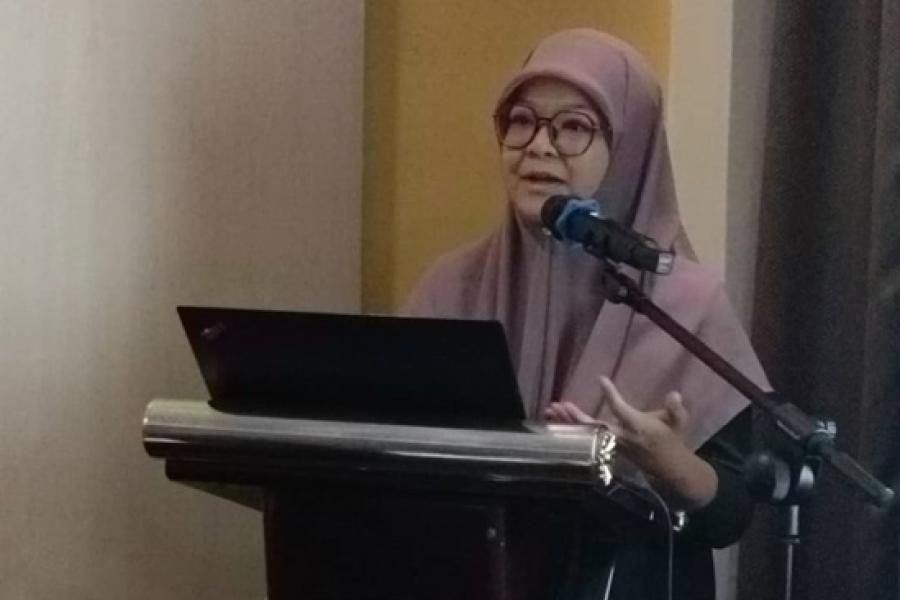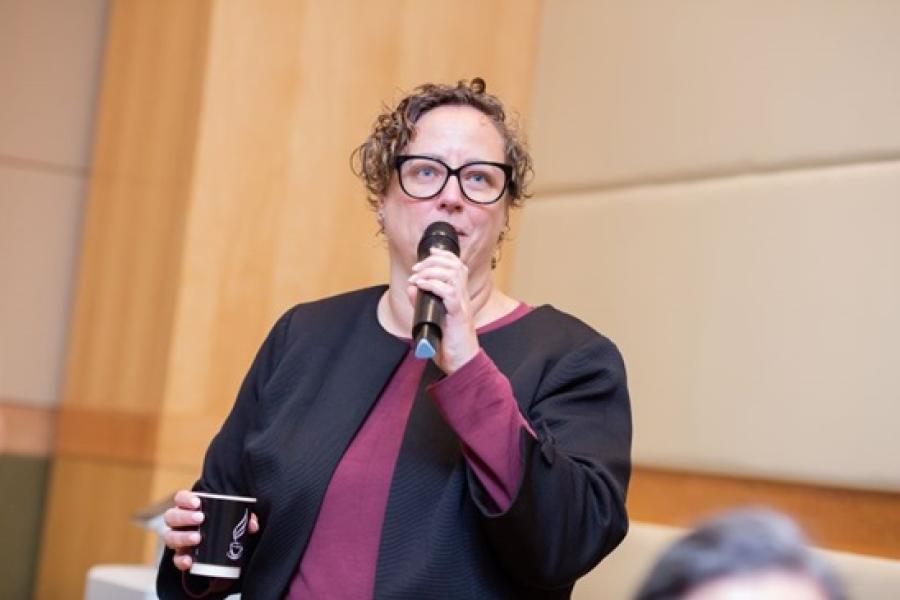Media training for efficient health reporting and infodemic management in Brunei Darussalam

Co-organized by WHO AIBD and Ministry of Health of Brunei Darussalam
The public is continuously exposed to an overwhelming amount of information in both digital and traditional media, ranging from the factual to false and sometimes misleading information. From a health perspective, this “infodemic” causes confusion among the public and contributes to behaviours harmful to health.
Journalists, media professionals and content creators play an important role in shaping public perceptions by providing facts, insight and balanced information and helping populations make safe, and informed choices to protect their health – whether it is about an outbreak of an infectious disease or management of a chronic health condition.
It was only recently with the COVID-19 pandemic, that this issue rose to prominence again and the world became aware of how critical health journalism is in providing accurate and timely information to the population and fighting the spread of mis and disinformation - both related to the pandemic and across numerous other health issues.
To reinforce the importance of the role of the media in reporting on health issues and develop the capacities of various stakeholders, the World Health Organization (WHO) partnered with the Asia-Pacific Institute for Broadcast Development (AIBD) and the Ministry of Health of Brunei Darussalam to organize a workshop on “Health reporting strategies and fighting the infodemic”, in Bandar Seri Begawan from 15 to 17 November 2022. The workshop was attended by journalists from local media organizations as well as from the national broadcaster Radio Television Brunei (RTB).
Dr Rabindra Abeyasinghe, WHO Representative for Malaysia, Brunei Darussalam and Singapore, opened the in-person training by recognizing the media’s crucial contribution, and responsibility, in strengthening health literacy beyond the infodemic and the COVID-19 pandemic, and influencing individuals to make healthy choices and policymakers in forming health-focused policies.
“It is critical to continue emphasizing and elevating health journalism in the public domain as our national health priorities include a broad spectrum of issues,” said Dr Rabindra Abeyasinghe. He continued, highlighting that as the “eye” of the public, the media has enormous potential to influence health-related behaviours and help tackle issues like the ever-growing silent epidemic of noncommunicable diseases, including mental health, that have a detrimental impact on the wellbeing of the population.
Ms Athirah Fakhriah bte Hj Awang Yussof, Head of Corporate Communications Division from the Ministry of Health of Brunei Darussalam, complemented Dr Rabindra's messages, stressing the importance of media's collaboration and partnership with governmental and international institutions, including WHO. Referring to the MOH's collaboration with local media in producing culturally-sensitive content during the pandemic she noted that "collaboration is the best way for innovation to occur" and that MOH Brunei frequently engaged the local media to ensure that the content produced was appropriate for the local context.

The 3-day training was structured as a series of informative presentations with active group discussion, activities, and case studies to provide relevant and contextualized examples to participants. The content focused on individual skills required for informed health journalism as well as knowledge and resources to help professionals detect, limit and counter misinformation in an efficient manner. These sessions ranged from journalistic ethics, techniques for writing health content, creating content for various media and working effectively with health experts to using health data for evidence-based reporting, multisource data collection, social listening, and fact-checking.
During one of the sessions delivered by WHO, Djordje Novakovic, a Strategic and Risk Communication Expert, noted that "working with trusted sources of information builds credibility and establishes the public's trust in your content," and emphasized that trust is crucial especially when communicating science, technology, and information on health and medicines. Novakovic also reiterated that collaboration with the media is a very important aspect of health promotion and public health because the media’s role is not limited just to sharing reliable information but can also be a major resource and asset in gathering data and information from various communities.
Amy Wright, a social listening expert from the United Kingdom and Principal at Marble Global, reinforced this point on sharing and gathering information, presenting on the new globalized and digitized information ecosystem and its impact on health of the population. She informed attendees on how media can use social listening as a tool to learn what information people are interested in or seeking, develop appropriate content and ultimately provide timely information that empowers people to take protective and preventive actions, contributing to the fight against an infodemic.

Building on topic of influencing health behaviours and choices, Sarir Kumar, Head of Social Media at Prasar Bharati, chaired a session on utilizing the power of new media. He discussed the importance of harnessing the available digital platforms using the right tools to create impactful and effective messaging that would encourage positive health outcomes. With the evolving digital information ecosystem, it is also important to ensure that these messages reach the intended populations through the most appropriate channels for optimal uptake.
Closing the workshop, participants and facilitators reflected on the key topics and discussions raised over the course of the previous days. The major takeaway was that the media plays a powerful role in fighting the Infodemic and inoculating populations against the mis and disinformation that can harm the health of communities and erode trust in health authorities. Journalists and media practitioners are key partners in educating the public and filling information voids by not only preventing the spread of inaccuracies but providing the right information at the right time to the public domain. The media is also a key partner in in disseminating facts and for helping translate science into actionable messages for the public, that have contributed immensely to preventing illness and saving lives.
WHO will continue to work with the media to provide information backed by science, evidence and facts to help the public make informed choices to protect their health.
This training was made possible with the support of the Government of Japan.


